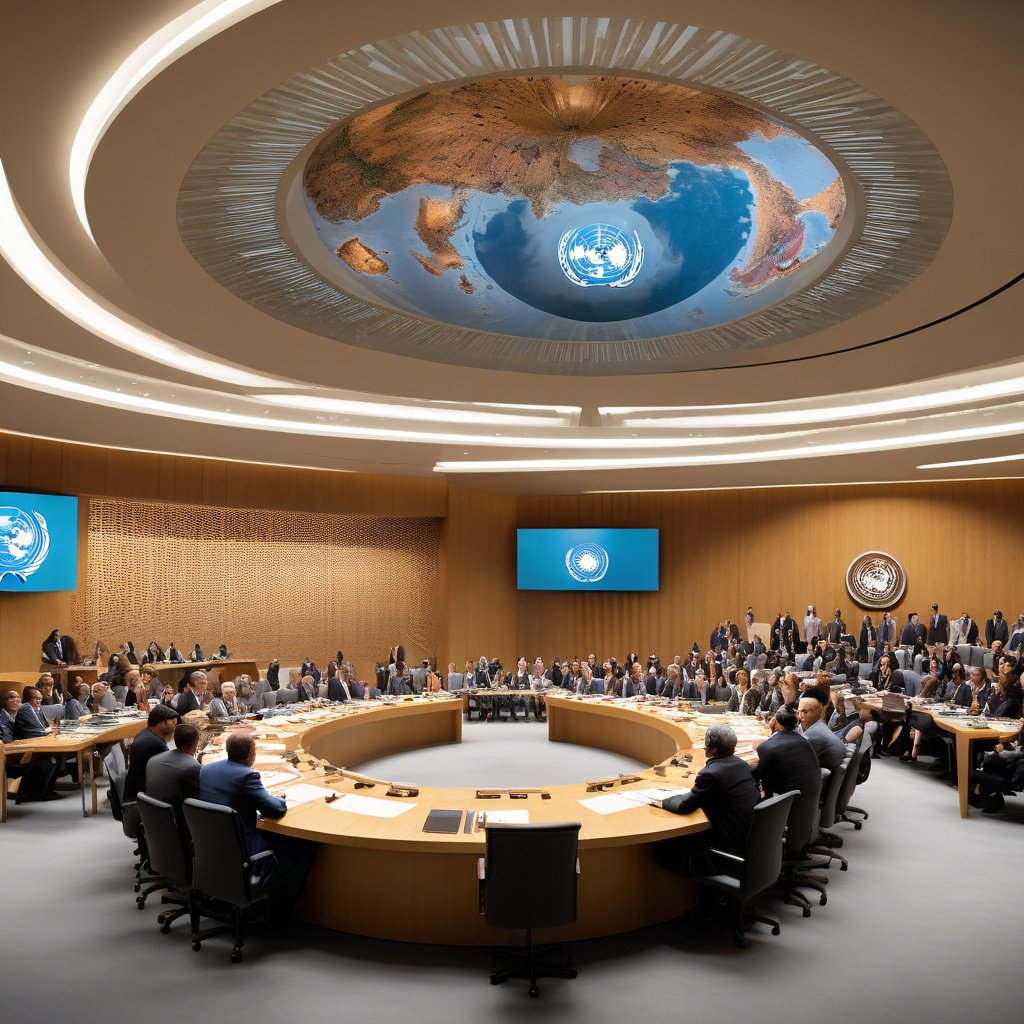Global Diplomacy at a Crossroads: Balancing the Value of UN Reports with the Urgency for Action
In the realm of global diplomacy, the United Nations plays a pivotal role in shaping international relations, promoting peace, and addressing pressing global challenges. One of the key tools in the UN’s arsenal is its extensive system of reports, which provide valuable insights, data, and recommendations on a wide range of issues, from climate change to human rights violations. However, as global diplomacy stands at a crossroads, the value of these reports is being weighed against the urgent need for decisive action and negotiation.
UN reports are undeniably valuable resources that help policymakers, diplomats, and the public understand complex global issues, identify trends, and develop evidence-based solutions. These reports are often the result of years of research, data collection, and analysis by experts from around the world. They provide an authoritative and impartial assessment of various challenges facing the international community, serving as a foundation for informed decision-making and policy formulation.
For example, the Intergovernmental Panel on Climate Change (IPCC) regularly releases comprehensive reports on the state of the global climate, including the impacts of human activities, projected scenarios, and mitigation strategies. These reports have been instrumental in raising awareness about the urgency of addressing climate change and have informed international negotiations such as the Paris Agreement.
Similarly, the UN’s annual Human Development Report offers valuable insights into global trends in health, education, income inequality, and other key indicators of human well-being. By highlighting disparities and recommending policy actions, this report plays a crucial role in advocating for inclusive and sustainable development policies at the national and international levels.
Despite their undeniable value, UN reports are facing increasing scrutiny and criticism in a rapidly changing global landscape. The world is grappling with a multitude of complex and interconnected challenges, from the COVID-19 pandemic to geopolitical tensions and environmental degradation. In this context, there is a growing sense of impatience and frustration with the perceived lack of concrete action and tangible results following the release of these reports.
Critics argue that UN reports often gather dust on the shelves of government offices and conference rooms, with their recommendations ignored or only partially implemented. They point to a disconnect between the wealth of information and analysis contained in these reports and the political will necessary to translate them into meaningful policy changes and actions on the ground. In a world that is increasingly characterized by rapid change and uncertainty, there is a pressing need for more agile, responsive, and effective mechanisms to address global challenges.
As global diplomacy stands at a crossroads, striking the right balance between the value of UN reports and the imperative for action and negotiation is more crucial than ever. While reports play a vital role in shaping public discourse, raising awareness, and informing decision-making, they must be complemented by robust mechanisms for implementation, monitoring, and accountability. Governments, international organizations, civil society, and the private sector all have a role to play in ensuring that the insights and recommendations contained in UN reports are translated into concrete policies, programs, and initiatives that make a real difference in people’s lives.
In conclusion, UN reports are valuable assets that provide essential guidance and analysis on a wide range of global issues. However, their true impact lies in the ability of the international community to move beyond rhetoric and towards meaningful action. As global diplomacy navigates a complex and challenging landscape, harnessing the potential of UN reports to drive positive change and advance collective well-being will be essential in shaping a more peaceful, prosperous, and sustainable world.
UN, Reports, Global Diplomacy, Action, Negotiation
